Humble named director of the Quantum Science Center

Travis Humble. Credit: Carlos Jones/ORNL, U.S. Dept. of Energy
Travis Humble of the Department of Energy’s Oak Ridge National Laboratory has been named director of the Quantum Science Center. Headquartered at ORNL, the QSC is a multi-institutional partnership that spans industry, academia and government institutions and is tasked with uncovering the full potential of quantum materials, sensors and algorithms.
Preceding this appointment, Humble was named deputy director in August 2020, when DOE established this five-year, $115 million effort as one of five National Quantum Information Science Research Centers. Following the departure of former QSC Director David Dean, Humble began serving as interim director in January.
“I am excited to be working at the forefront of quantum science and technology with this amazing team of scientists and engineers,” he said. “The QSC provides a wonderful opportunity to leverage our nation’s best and brightest for solving some of the most interesting scientific problems of our time.”
As interim director, Humble has overseen research related to the QSC’s three primary focus areas: Quantum Materials Discovery and Development, Quantum Algorithms and Simulation, and Quantum Devices and Sensors for Discovery Science. In his new role, he looks forward to continuing collaborations among the QSC’s partner institutions, which include ORNL, Los Alamos National Laboratory, Fermi National Accelerator Laboratory, Purdue University, Microsoft and IBM.
A distinguished ORNL scientist, Humble also directs the laboratory’s Quantum Computing Institute, which focuses on accelerating the development of quantum computing resources and expertise, as well as the Oak Ridge Leadership Computing Facility’s Quantum Computing User Program, which provides users from around the world with access to the sophisticated simulation capabilities of world-leading supercomputers.
Humble first set foot on the laboratory’s campus as a postdoctoral associate in 2005, following his appointment as an Intelligence Community Postdoctoral Research Fellow. In 2007, he became an ORNL staff member working in the newly formed area of quantum information science. He received a bachelor’s degree in chemistry from the University of North Carolina Wilmington and a master’s degree and doctorate in theoretical chemistry from the University of Oregon.
As QSC director, Humble plans to prioritize the development of quantum materials for quantum computing and quantum sensing, as well as the application of these technologies to aid scientific discovery, improve the nation’s security and energy efficiency, and ensure economic competitiveness. Other long-term goals include demonstrating the advantages derived from early quantum computers and advancing methods for probing the fundamental physics of quantum matter.
“Now is an exciting time for the discovery and demonstration of quantum computing and quantum sensing,” he said. “The QSC is synthesizing and fabricating quantum materials that will lead to resilient quantum devices, and we are validating these prototypes using today’s quantum computers and sensors. These co-designed concepts are at the heart of how the center integrates research and delivers on our goal of enabling scalable quantum technologies.”
To overcome long-standing obstacles that face the field of quantum information science, the QSC leverages state-of-the-art DOE user facilities, including the OLCF, the Spallation Neutron Source and the Center for Nanophase Materials Sciences, all of which are located at ORNL, as well as the Center for Integrated Nanotechnologies at LANL and the National High Magnetic Field Laboratory, a partnership among LANL, Florida State University and the University of Florida.
By simultaneously addressing current quantum challenges and expanding workforce development activities focused on recruiting and training the next generation of quantum scientists and engineers, Humble anticipates that the QSC’s role as a leader in the ongoing quantum revolution will only continue to grow. Under his leadership, the center will continue to host virtual and in-person events, including the annual quantum summer school, for undergraduate students, graduate students and postdoctoral researchers.
“I believe strongly in developing a diverse quantum workforce to tackle the challenges facing scalable quantum technologies,” Humble said. “Cultivating our early career professionals is pivotal to advancing the QSC research portfolio and sustaining the broader field of quantum information science.”
Humble also mentors students through his joint faculty appointment as an assistant professor affiliated with the Bredesen Center for Interdisciplinary Research and Graduate Education at the University of Tennessee, Knoxville. To further benefit the quantum community, he serves as editor-in-chief for the journal ACM Transactions on Quantum Computing, associate editor for the journal Quantum Information Processing and co-chair of the Institute of Electrical and Electronics Engineers Quantum Initiative.
Now in his 17th year at ORNL and more passionate about the future of quantum than ever, Humble is positioning the QSC to shape quantum research and technologies at national and international scales.
“Quantum science and technology are transformative paradigms, and we have only scratched the surface of what is possible,” he said. “The QSC will bring new discoveries in materials, computing and sensing that promote a deeper understanding of these ideas and prepare us for that next generation of quantum technologies.”
The QSC, a DOE National Quantum Information Science Research Center led by ORNL, performs cutting-edge research at national laboratories, universities, and industry partners to overcome key roadblocks in quantum state resilience, controllability, and ultimately the scalability of quantum technologies. QSC researchers are designing materials that enable topological quantum computing; implementing new quantum sensors to characterize topological states and detect dark matter; and designing quantum algorithms and simulations to provide a greater understanding of quantum materials, chemistry, and quantum field theories. These innovations enable the QSC to accelerate information processing, explore the previously unmeasurable, and better predict quantum performance across technologies. For more information, visit qscience.org.
UT-Battelle manages ORNL for DOE’s Office of Science, the single largest supporter of basic research in the physical sciences in the United States. DOE’s Office of Science is working to address some of the most pressing challenges of our time. For more information, visit https://energy.gov/science — Elizabeth Rosenthal
